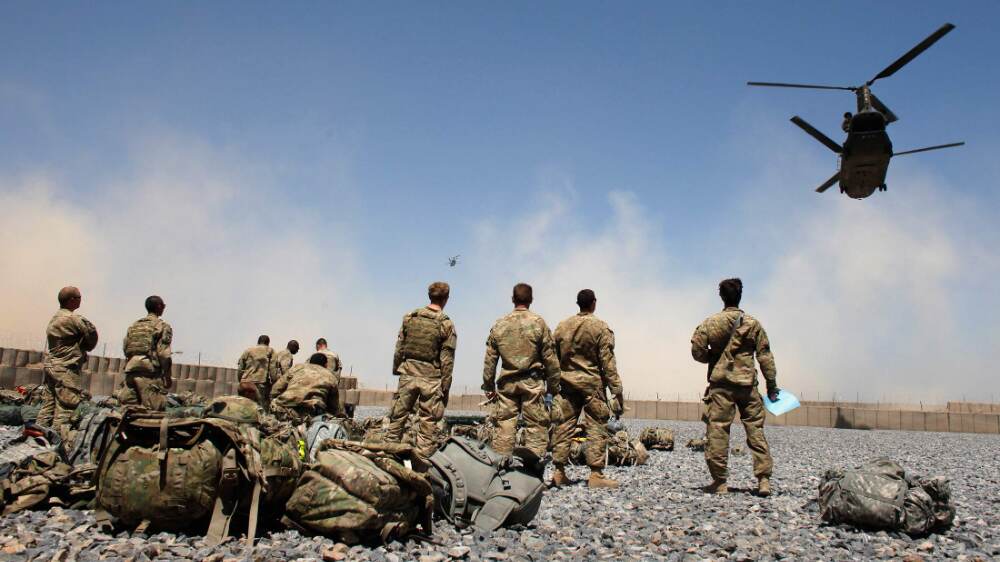Opportune time
As history repeats itself in Afghanistan, people there should lead the peace process leaving foreign powers to facilitators' role

The situation in Afghanistan today has strong parallels with the events that occurred there more than three decades ago. Today, it appears that history is almost repeating itself in Afghanistan
On April 14, 1988, the USSR, US, Pakistan and Afghanistan signed an accord in Geneva which provided for the withdrawal of Soviet forces from Afghanistan. The withdrawal of Soviet forces from Afghanistan commenced thereafter and was completed by February 1989.
Earlier this month, the US government had announced the withdrawal of American forces from Afghanistan by September this year. Before that, the Trump Administration had announced the withdrawal of forces by May.
Today, there is considerable speculation about the fate of the current Ashraf Ghani-led Afghan government after the withdrawal of US-led international forces from Afghanistan. A similar situation prevailed in 1989 when it was widely expected that the regime of Najibullah, the then Afghan President would immediately collapse like a pack of cards after the withdrawal of Soviet troops from Afghanistan.
However, the Najibullah government not only survived during the initial years following the Soviet withdrawal but actually started consolidating itself. The Afghan army was also able to defeat the Mujahideen forces in quite a few engagements such as in the battle of Jalalabad in July 1989.
However, with the dissolution of the Soviet Union in August 1991, the Russian government stopped giving aid to the Najibullah government. General Abdul Rashid Dostum and other important persons defected from the Najibullah government and joined the Mujahideen forces. Najibullah resigned in April 1992. The UN provided him shelter in its compound in Kabul.
In April 1992, with the fall of the Najibullah government appearing to be imminent, most of the Mujahideen groups who had fought the Soviet-backed Afghan regime reached an agreement regarding the formation of an interim government that was to take charge of the country. This agreement was facilitated by the UN at Peshawar and was known as the Peshawar accord.
The Peshawar accord was signed on April 24, 1992, between most of the Mujahideen groups except the Hezb-e-Islami led by the powerful warlord Gulbuddin Hekmatyar. The accord provided for the setting up of an interim coalition government in Afghanistan under the Presidency of Sibghatullah Mojaddedi.
However, Gulbuddin Hekmatyar was reluctant to share power with others and he outrightly rejected the Peshawar Accord. Confident of overpowering the other factions, the forces of Hekmatyar made a dash for Kabul. The Peshawar Accord, therefore, became a non-starter right from the beginning.
The country was soon plunged into civil war and chaos. Violent clashes broke out between the various Mujahideen groups that controlled different parts of Kabul as well as other parts of the country. Rocket attacks among these groups devastated the beautiful city of Kabul.
Eventually, after nearly four years of violent conflict, a new group namely the Taliban overpowered the Mujahideen and brought an end to the civil war. The Taliban rose to prominence after they captured the city of Kandahar in November 1994. Kabul fell to the Taliban on September 27, 1996.
After entering Kabul, one of the first act of the Taliban was to seize Najibullah from the UN compound and brutally murder him. Surprisingly, even the UN failed to save Najibullah.
If the American forces exit from Afghanistan by September 2021, the current government of Ashraf Ghani may fall. The Taliban already controls a large number of districts and most of the countryside. Although the Afghan National Army is today better equipped and better trained than the armed forces of the Najibullah government, it is unlikely to survive the imminent onslaught of the Taliban once the American-led international forces withdraw from the country.
Intense negotiations are underway for arriving at a peace accord in Afghanistan. Foreign powers with interest in the region are part of the peace process. There is also intense jockeying for power amongst politicians in Afghanistan. Gulbuddin Hekmatyar, Dostum, Ismael Khan and some other Mujahideen leaders of the civil war are still alive and are capable of creating trouble.
Can a peace accord among the warring parties in Afghanistan be arrived at? Will it bring durable peace in Afghanistan, or will it go the way of the Peshawar Accord of 1992? Will Ashraf Ghani meet the same fate as Najibullah did, if indeed the Taliban takes over the Afghanistan government?
Afghanistan has for long become an arena for proxy wars between rival foreign powers. It has suffered greatly from the backroom machinations of foreign powers. The "Great Game" involving Imperial Russia and Imperial Britain in the 19th century led to three Anglo-Afghan wars. The cold war tension between the USSR and the US contributed to the Soviet invasion of Afghanistan in 1979 and the civil war that followed. The attack by Osama bin Laden, a Saudi national, on the US on September 11, 2001, led to the US Invasion of Afghanistan in November 2001.
After years of war, it is time for peace in Afghanistan. The Afghan people alone can bring peace to their homeland. They alone should lead the current peace process. Foreign powers should only facilitate the peace process and act as guarantors of the peace accord. The UN has to be a proactive facilitator now unlike in 1992 when it played the role of a passive spectator.
Today, the need of the hour is for the emergence of an Afghan leadership that can accommodate the aspirations of all the ethnic groups in the country and also bring about national reconciliation and unity.
The Afghan people today have before them a historic opportunity to decide their own destiny. They should make the most of this opportunity.
The writer is a retired IAS officer who had served in Afghanistan during 2011-13. Views expressed are personal



